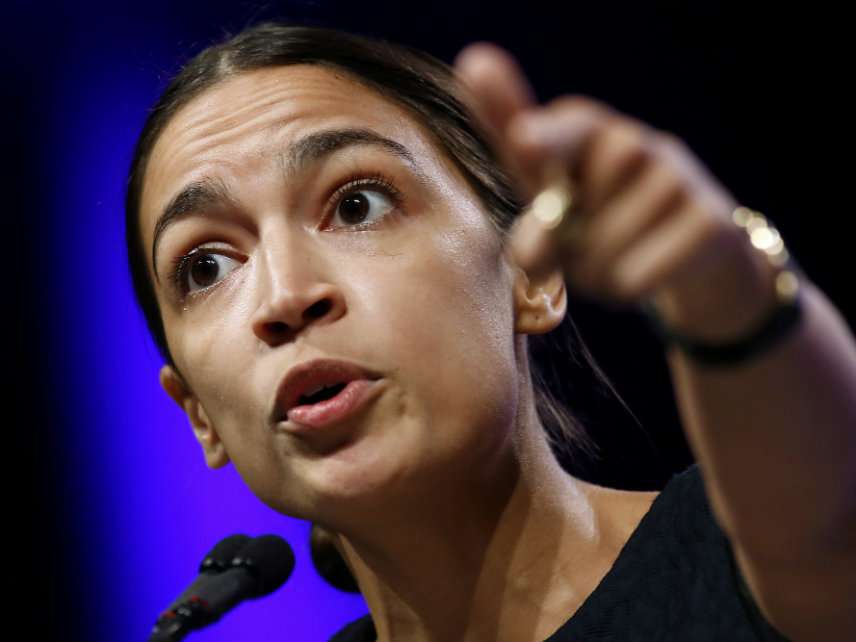Alexandria Ocasio-Cortez: 'Eliminate' Electoral College, It 'Undermines' Democracy
The socialist candidate fails to grapple with why we have the Electoral College in the first place.

Now that the Senate has confirmed Brett Kavanaugh to the Supreme Court, some Democrats are turning their fire on the idea that each state should be equally represented in the upper chamber of Congress. "The idea that North Dakota and New York get the same representation in the Senate has to change," NBC national security reporter Ken Dilanian tweeted.
Others, like GQ correspondent Julia Ioffe, took issue with the Electoral College, which allowed Presidents George W. Bush and Donald Trump to place four justices on the Court, even though Bush and Trump lost the popular vote in 2000 and 2016, respectively.
One politician who endorsed Ioffe's argument is Alexandria Ocasio-Cortez, the democratic socialist running to represent New York's 14th Congressional District:
It is well past time we eliminate the Electoral College, a shadow of slavery's power on America today that undermines our nation as a democratic republic. https://t.co/00HZN3MI6F
— Alexandria Ocasio-Cortez (@Ocasio2018) October 6, 2018
Ocasio-Cortez isn't the only high-profile Democrat to embrace this view. "I passionately believe it's time to abolish the Electoral College," Hillary Clinton wrote in The Atlantic last month. Clinton's view isn't surprising. After all, she earned nearly 3 million more votes than Trump in 2016, but still lost.
In their criticisms of the Electoral College, Ocasio-Cortez and Clinton fail to grapple with the reason we have such a system in the first place. By preventing the majority from getting its way all the time, the Electoral College ensures that views from every part of the nation are represented. That way, those in high-population states with large cities aren't the only ones who have a say. Instead, as David Harsanyi wrote in a November 2016 piece for Reason, the Electoral College helps "create moderation and compromise":
To some extent, the Electoral College impels presidents and their political parties to consider all Americans in rhetoric and action. By allowing two senators for both Wyoming, with a population of less than 600,000, and California, with a population of more than 38 million, we create more national cohesion. We protect large swaths of the nation from being bullied. We incentivize Washington, D.C.—both the president and the Senate—to craft policy that meets the needs of Colorado as well as New York.
This is especially important when considering that small states—even sparsely populated ones—play important industrial roles, particularly in agriculture. If those states "become marginalized and then coerced to embrace the policies favored by the people in urban areas, the nation loses valuable resourcefulness, imagination and brainpower," Harsanyi noted.
Abolishing the Electoral College in favor of a popular vote–based system might also have some unexpected results. Clinton won the popular vote in large part due to her margins in New York and California, where Republicans knew their votes didn't matter. Changing the system might motivate some of those Republicans who stayed home on Election Day to come out of the woodworks. Texas Democrats might do the same. It's impossible to know who would have won in 2016 absent the Electoral College, as both parties—to say nothing of both campaigns—would've likely had very different strategies.
It's easy to blame the system when you don't win. But that doesn't mean the system is actually broken, or that there's an objectively "better" one we should be using.


Show Comments (416)